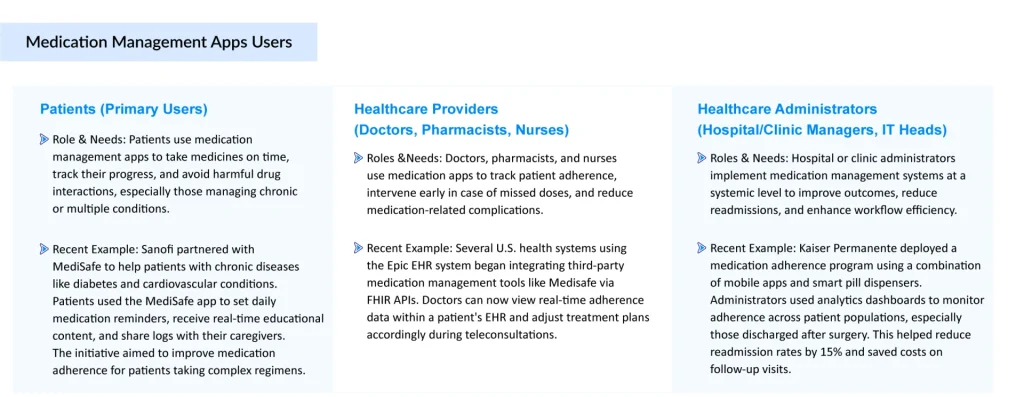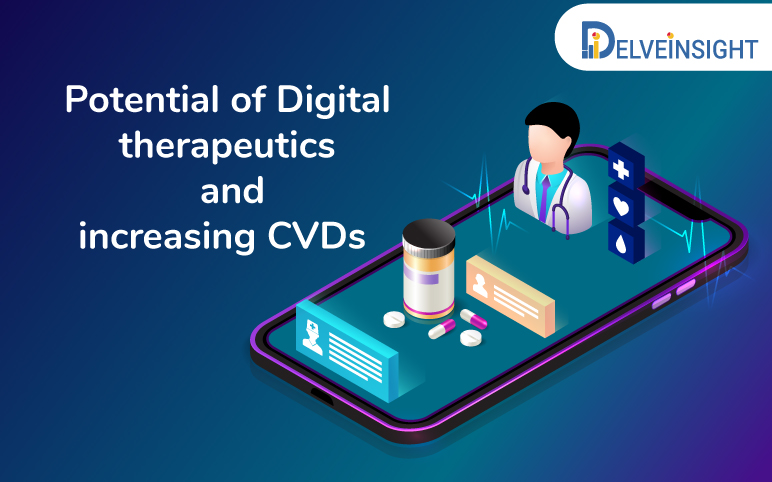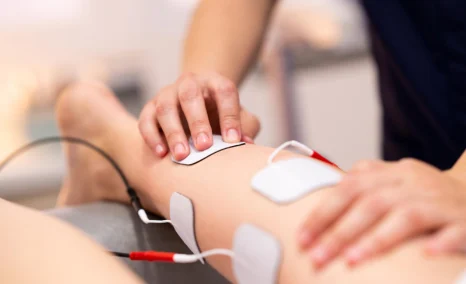Medication Management Apps: A Digital Solution for Medication Adherence and Safety
Aug 27, 2025
Table of Contents
Medication management apps have become essential digital tools for helping individuals stay on top of their medication routines. These apps are designed to enhance adherence by providing timely reminders and alerts, ensuring that medications are taken at the right time and in the correct dosage. They also offer features for tracking medication intake, allowing users to log doses taken or missed, which is especially helpful for those managing complex treatment plans.
Beyond basic reminders, many apps include drug interaction warnings, a critical safety feature for individuals taking multiple prescriptions. Some also send notifications when it’s time to refill a prescription, preventing gaps in treatment. Additionally, many of these platforms offer communication tools that allow users to share medication data with caregivers or healthcare providers, improving coordinated care.
Downloads
Click Here To Get the Article in PDF
By simplifying medication routines and offering personalized, real-time support, these apps help reduce the risks associated with missed doses, ultimately improving health outcomes. Popular apps such as Medisafe, MyTherapy, and Pill Reminder Meds Alarm exemplify this trend. More advanced platforms are now integrating AI-driven analytics, wearable device compatibility, and cloud-based medical records, creating a more comprehensive and connected healthcare experience.
The Growing Need for Medication Management Solutions
The global healthcare landscape is witnessing a growing demand for medication management solutions, driven by multiple interrelated factors. One of the primary drivers is the rising prevalence of chronic diseases such as diabetes, hypertension, cardiovascular disorders, and asthma, which require long-term medication regimens. Coupled with this is the rapidly aging population, especially in developed and middle-income countries, who often take multiple medications daily and are at higher risk for drug interactions, missed doses, and adverse effects.
A major concern within this context is medication non-adherence, patients failing to take their medications as prescribed. Non-adherence can lead to worsened health outcomes, increased hospital readmissions, and higher healthcare costs. To address these challenges, technology has emerged as a powerful enabler, helping to bridge critical gaps in healthcare delivery. Among the most effective technological tools are medication management apps, which are increasingly being used to support patients, caregivers, and healthcare providers in ensuring proper medication use.
Key Features of Medication Management Apps
Medication management apps have become essential tools in modern healthcare, especially for individuals managing chronic illnesses, elderly patients, and caregivers. These apps go beyond simple reminders; they offer comprehensive features that ensure medication adherence, enhance patient safety, and facilitate communication between patients and healthcare providers.
- Medication Reminders and Alerts: One of the most fundamental features of a medication management app is the ability to send timely reminders for taking medications. These reminders can be customized based on time of day (e.g., morning, noon, evening), dosage frequency (daily, weekly, hourly, etc.), medication form (pills, drops, injections, patches), and special instructions (e.g., take with food, on an empty stomach). Many apps even provide snooze or confirmation options, ensuring users acknowledge each dose.
For Instance, in January 2025, HealthBuddy by Smart Pillbox was launched. It was designed to enhance medication adherence by offering users features such as smart alerts, caregiver support, and real-time insights. The app is available on iOS and Android.
Also, in June 2024, MedSure Systems announced the initial launch of a groundbreaking medication adherence technology that connects doctors, patients, pharmacies, and caregivers via a secure App to increase positive clinical outcomes, patient experience, and lower healthcare costs.
- Medication List Management: Apps often include a comprehensive medication list feature, allowing users to add medications with their names, dosages, and administration routes, record prescribing physician details, store images of pill bottles or packaging, and set start and end dates for short-term medications. This list becomes a digital health record useful during doctor visits, hospitalizations, or emergencies.
For Instance, in February 2025, the Irish Health Service Executive (HSE) launched a new feature within its Health App, enabling users to manage their medication lists. This feature is part of the “Digital for Care” initiative, aiming to digitize and streamline access to healthcare services. The app enables users to create and manage a digital list of their medications, including those obtained through drug payment or medical card schemes.
- Pill Identification and Drug Information: Advanced apps offer a pill identifier tool, allowing users to input the color, shape, and imprint code to determine the drug type. Additionally, apps can show drug descriptions, intended use, potential side effects, and contraindications. This helps users better understand their prescriptions.
For Instance, in July 2025, the Pill Identifier & Med Scanner app (iOS) launched a major update (v2.3), adding key features like camera-based pill identification, a barcode scanner for medication packaging, and detailed drug information retrieval, including dosage, side effects, and interactions. With a more user-friendly interface, the app provides faster and easier access to pill data, making it a valuable tool for safe and accurate medication management.
- Drug Interaction Warning: Medication management apps often come equipped with a drug interaction checker. This feature scans the user’s entire medication list, identifies combinations that may result in adverse effects, and sends alerts about potential interactions with alcohol, food, or other prescriptions. It acts as a safety net to prevent harmful mistakes in multi-drug regimens.
For Instance, in February 2025, mySeniorCareHub launched a new Drug Interaction Checker feature as part of its platform for seniors and caregivers. This feature aims to help users identify potential interactions between medications, both prescription and over-the-counter, to improve medication safety. The tool is designed to be user-friendly for both seniors and caregivers, allowing them to check for interactions within the platform easily.
- Prescription Refill and Expiry Alerts: To avoid missed doses due to empty bottles, many apps include refill alerts based on dose frequency and quantity remaining and expiration date notifications. Some integrate with pharmacy services to enable automatic refill requests or in-app ordering.
For Instance, in November 2024, Pillarium, a home medication tracking app, was launched on the App Store for iOS devices. The app focuses on helping users manage their home medications by tracking expiration dates, setting reminders, and organizing medications with tags.
Additionally, modern medication management apps offer a wide range of features to support adherence and improve health outcomes. They help users track whether doses are taken or missed through manual confirmations and adherence summaries. Symptom and side-effect tracking enables users to log and rate health issues, facilitating the identification of treatment problems. Many apps integrate with wearable devices and health trackers to monitor vital signs in real-time. Caregiver access enables remote support, particularly for elderly or patients with memory impairments. Users can share medication data with healthcare providers for better treatment decisions. These apps also support multiple languages, offer accessibility features, work offline, and ensure data safety through HIPAA/GDPR compliance. Advanced scheduling tools handle complex regimens, while educational content and community links make them valuable health companions.

Integration of Medication Management Apps with Wearables, IoT Devices, and Smart Pill Dispensers
Medication management apps are evolving beyond simple reminder tools into fully connected health platforms, thanks to integration with wearables, IoT (Internet of Things) devices, and smart pill dispensers. These integrations empower users and healthcare providers with real-time data, improve medication adherence, and support proactive health monitoring, especially for patients with chronic conditions, the elderly, and those requiring long-term medication regimens.
1. Real-Time Vitals Monitoring: Integration with wearables and IoT-enabled medical devices allows medication management apps to continuously monitor key health parameters such as:
- Heart rate
- Blood pressure
- Blood glucose levels
- Oxygen saturation (SpO2)
- Sleep patterns
- Activity levels
How Apps Use It: Apps analyze the vitals data in real time using AI algorithms to detect abnormalities or trends. If a medication’s effect is not showing expected results (e.g., blood pressure remains high despite antihypertensives), the app may prompt the user to:
- Double-check dosage
- Contact a healthcare provider
- Reschedule medication intake
Example: Apple Health integrates with apps like Medisafe and One Drop to synchronize glucose readings and adjust medication reminders based on blood sugar patterns.
Fitbit and Samsung Health sync with medication apps to correlate activity levels and vitals with medication adherence.
2. Automatic Dose Dispensing and Confirmation: These devices are especially useful for elderly patients, those with memory challenges, or individuals taking multiple medications. Smart pill dispensers (IoT-enabled devices) automatically:
- Dispense the right medication at the scheduled time
- Track whether the dose was taken
- Send confirmation to the connected app
- Alert users or caregivers if a dose is missed
How Apps Use It: The app receives real-time updates from the dispenser:
- Dose taken → Marked as completed
- Dose missed → Sends reminder or alert to caregiver
Data is logged automatically and can be reviewed by patients or physicians.
Example: Hero Pill Dispenser, connects with the Hero app to automate dispensing and track every dose.
MedMinder: Notifies the app (and optionally family members) when a pill compartment is accessed.
3. Connectivity with Smartwatches and Fitness Bands: Smartwatches (e.g., Apple Watch, Fitbit, Samsung Galaxy Watch) and fitness trackers collect health data and also act as alert systems for medication schedules.
How Apps Use It: Push medication reminders directly to the wrist, even when the phone is not nearby. Allow quick confirmation (e.g., tapping “Taken” on the watch interface). Record sleep, stress, or activity levels, which apps use to fine-tune medication timings (e.g., avoid doses during deep sleep). Some watches even support voice-based confirmations or pill logging.
Example: Medisafe on Apple Watch sends discreet pill reminders, allows one-tap confirmation, and displays upcoming medication.
MyTherapy with Fitbit tracks physical activity and correlates it with medication effectiveness (e.g., for asthma, arthritis, or heart conditions).

The Role of AI and Machine Learning in Medication Management Apps
Artificial Intelligence (AI) and Machine Learning (ML) are playing a transformative role in the development of smart medication management apps, helping patients stay on track with their treatments while enabling healthcare providers to make better-informed decisions. These technologies bring a new level of personalization, automation, and predictive capability to healthcare management.
- Personalized Medication Schedules and Smart Reminders: AI analyzes user behavior, medication history, and daily routines to create customized medication schedules and adaptive reminders. For example, Medisafe uses AI to deliver intelligent reminders tailored to when users are most likely to take their meds. It adjusts alerts based on whether the user typically ignores or delays them, helping reduce missed doses.
- Predicting Non-Adherence Risk: Machine learning models can identify patterns such as frequently missed doses or irregular app usage to predict when a user is likely to skip medications. For example, MyTherapy uses predictive analytics to monitor patient adherence trends. When a pattern of non-adherence is detected, the app may escalate reminders or notify caregivers.
- Drug Interaction and Safety Warnings: AI-powered apps can cross-reference medication combinations in real time to warn users about dangerous drug-drug interactions, duplications, or lifestyle conflicts. For example, MedsChecker (powered by DrugBank AI) provides real-time interaction warnings based on a user’s medication list. Additionally, provides alerts about potential interactions with over-the-counter meds, alcohol, or even certain foods.
- Integration with Wearables and Smart Devices: AI processes real-time data from wearables and IoT devices, adapting medication reminders based on vitals or health changes. For example, Example: DoseCue and Popit Smart Pill Tracker devices use sensors and AI to detect if a pill has been taken. Additionally, they communicate with the app to log doses and adjust reminders automatically.
- Chatbots and Virtual Health Assistants: AI-powered chatbots within apps can answer medication-related questions, provide emotional support, or alert users about refills. For example, Ada Health uses AI to simulate a conversation and guide users through symptom checks and medication advice.
- Continuous Learning and Optimization: AI and ML help apps improve over time by learning from user interactions, health records, and outcomes to refine medication management strategies. For example, CareZone (now part of Walmart Health) uses AI to learn which users need more frequent follow-ups or which medication routines work best for chronic diseases.
Data Privacy, Security & Compliance in Medication Management Apps
| Category | Details | Real-World Examples | Regulatory Standards/Notes |
| Data Privacy | Ensures users’ health data is collected and used with informed consent; data is anonymized or pseudonymized. | Medisafe offers user control, does not sell data, and complies with user deletion requests. | GDPR, CCPA |
| Data Security | Protects user data using encryption, authentication, secure servers, and regular audits. | Medsien (2024) encrypts data at rest/in transit, partners with AWS HealthLake, and performs audits. | HIPAA, HITECH |
| Regulatory Compliance | Apps must meet local and international laws related to digital health and medical data. | Apple Health App, on-device processing, optional cloud sync, compliance with HIPAA & GDPR. | HIPAA, GDPR, FDA (for SaMD), MHRA (UK) |
| Predictive Risk Detection | ML models flag patients at risk of non-adherence or complications based on behavior. | MyTherapy detects missed doses, alerts users or caregivers. | Encouraged under Digital Health standards |
| AI Chatbot Support | Chatbots guide patients on meds, offer educational insights, and symptom checks. | Ada Health, Your.MD offers real-time symptom checking and drug info using NLP. | May be regulated if guiding clinical decisions |
| Secure Device Integration | Wearables/IoT devices integrated to improve tracking; must secure PHI flow. | Popit Smart Tracker, Apple Watch + Health App, real-time pill tracking and alerts. | HIPAA-compliant cloud systems are required. |
| Breach & Risk Cases | Data breaches raise concerns over vendor security, leading to fines or shutdowns. | myNurse Breach (2022–23), 100,000+ records leaked; company shut down. | HIPAA breach penalties, mandatory reporting |
Key Medication Management Apps
- Medisafe
Company: Medisafe Inc. (USA)
Description: Medisafe is a widely recognized app that helps users manage multiple medications with personalized reminders, drug interaction warnings, and adherence tracking. It supports syncing with caregivers and integrates with smartwatches and health systems. Medisafe partners with pharmaceutical companies and healthcare providers to improve adherence at scale.
- MyTherapy
Company: smartpatient GmbH (Germany)
Description: MyTherapy is a medication tracker and health journal that includes features such as pill reminders, symptom logging, mood tracking, and health reports. It’s widely used in Europe and supports chronic conditions like hypertension, diabetes, and depression. It’s designed for patient-provider collaboration with data export features.
- Pill Reminder – Meds Alarm
Company: MedicaApp (Saudi Arabia)
Description: A simple and intuitive app focused on daily medication reminders. MedicaApp has grown in popularity in the Middle East and Asia and includes features like visual pill identification, refill alerts, and medication history. It’s ideal for elderly users or those with limited tech skills.
- Mango Health (acquired by TrialCard)
Company: Mango Health (USA), now part of TrialCard
Description: Mango Health gamified medication adherence by offering rewards for consistently taking medications on time. It also offered interaction warnings and progress tracking. The app is now part of TrialCard’s digital patient engagement platform, primarily used by pharma partners.
- DoseCast
Company: Montuno Software (USA)
Description: DoseCast is a medication management app designed for individuals and healthcare professionals. It includes features like dose-level tracking, cloud syncing across devices, and customizable reminders. It’s often used in clinical settings for complex medication regimens.
- Hero – Smart Pill Dispenser App
Company: Hero Health, Inc. (USA)
Description: Hero offers a hardware-software solution with a smart pill dispenser and connected app. It’s designed for elderly patients or those managing multiple medications. The app tracks adherence, notifies caregivers, and refills medications via an integrated pharmacy service.
Market Size and Emerging Region in Medication Management Apps
The global medication management apps market is estimated to grow at a CAGR of 11.84% during the forecast period from 2025 to 2032 to reach a value of USD 12.44 billion by 2032. Key market drivers include:
- Rising prevalence of chronic diseases and polypharmacy.
- Increased adoption of digital health tools for medication adherence.
- A growing aging population and demand for remote care solutions.
In 2024, North America dominated the global market, driven by widespread use of mobile health (mHealth) apps, government support for digital therapeutics, and strong healthcare infrastructure. The region benefits from favorable reimbursement policies, tech-savvy patient populations, and robust integration of electronic health records (EHRs).
Meanwhile, Asia-Pacific and Europe are emerging as high-growth regions. The Asia-Pacific region, in particular, is witnessing rapid digitalization in healthcare, the expansion of telemedicine platforms, and increased mobile phone penetration. Europe is witnessing a rise in medication adherence programs and cross-border e-health initiatives, particularly in countries such as Germany, the UK, and the Nordic countries.
From a solution perspective, the market encompasses pill reminders, medication trackers, prescription refill alerts, AI-driven drug interaction warnings, and integration with wearable devices and health monitoring systems. This reflects a global shift toward personalized, tech-enabled, and preventative care models for managing complex drug regimens.
Medication Management Apps Market Dynamics
- Market Drivers
Growing Chronic Disease Burden and Polypharmacy: With the rise of conditions like diabetes, hypertension, asthma, and cardiovascular diseases, patients often take multiple medications. Medication management apps ensure timely dosing, reducing risks of non-compliance and adverse drug events.
Aging Population and Elder Care Needs: Older adults, who are most likely to forget or mismanage medications, are increasingly benefiting from reminder-based tools and caregiver-linked medication platforms. These apps enhance independence and reduce hospital readmissions.
Integration with Telehealth and Digital Health Ecosystems: Medication management apps are now part of broader digital platforms that offer teleconsultation, remote monitoring, and patient education. Apps like Medisafe, MyTherapy, and Mango Health are integrating with EHRs and wearable devices to offer real-time tracking and AI-powered insights.
- Market Restraints
Data Privacy and Compliance Issues: Medication apps collect sensitive health information. Concerns over data breaches, non-compliance with HIPAA or GDPR, and third-party data sharing pose risks to widespread adoption.
Low Digital Literacy in Elderly and Rural Populations: Despite high smartphone penetration, many older adults or those in underserved areas may lack the skills or infrastructure to benefit from such apps. Accessibility remains a barrier, especially in developing economies.
Investment and Funding Trends in Medication Management Apps
Investors are increasingly recognizing the potential of digital tools that support medication adherence, chronic disease management, and connected healthcare ecosystems. Recent funding rounds signal strong interest in AI-driven, user-friendly platforms.
January 2025
- CarepathRx secured $30 million in funding to expand its AI-enabled medication adherence platform for specialty and home-based care.
- DoseHealth raised $12 million in Series B funding to enhance its smart pill dispenser and app integration features.
February 2025
- MyTherapy (smartpatient GmbH) secured $15 million to scale its medication and symptom tracking platform across Europe and North America.
- TabTime Technologies raised $5.8 million to develop a smart medication scheduler for dementia patients.
March 2025
- Pilloxa, known for its connected pillbox and adherence app, raised €7 million to enhance cross-EU healthcare provider partnerships.
- Medisafe received $20 million in strategic investment from a large pharmaceutical company to integrate its app with drug-specific patient support programs.
Conclusion
Medication management apps play a critical role in today’s digital healthcare ecosystem by simplifying how medications are tracked, taken, and monitored. These tools improve medication adherence, reduce errors, and support both patients and healthcare providers in managing complex treatment plans. For patients, they offer timely reminders, dosage alerts, and refill notifications, enhancing independence and promoting better health outcomes. Healthcare providers benefit from real-time data that supports more informed clinical decisions and stronger patient engagement.
Top apps like Medisafe, MyTherapy, and RxMindMe are widely used for their user-friendly interfaces, reminder systems, and integration with wearables and health records. As technology evolves, these apps are increasingly incorporating AI, cloud-based tracking, and integration with electronic health records (EHRs), making them more personalized and effective. Overall, medication management apps are not just digital reminders; they are powerful tools improving treatment outcomes and shaping the future of medication adherence and healthcare delivery.
Downloads
Article in PDF



